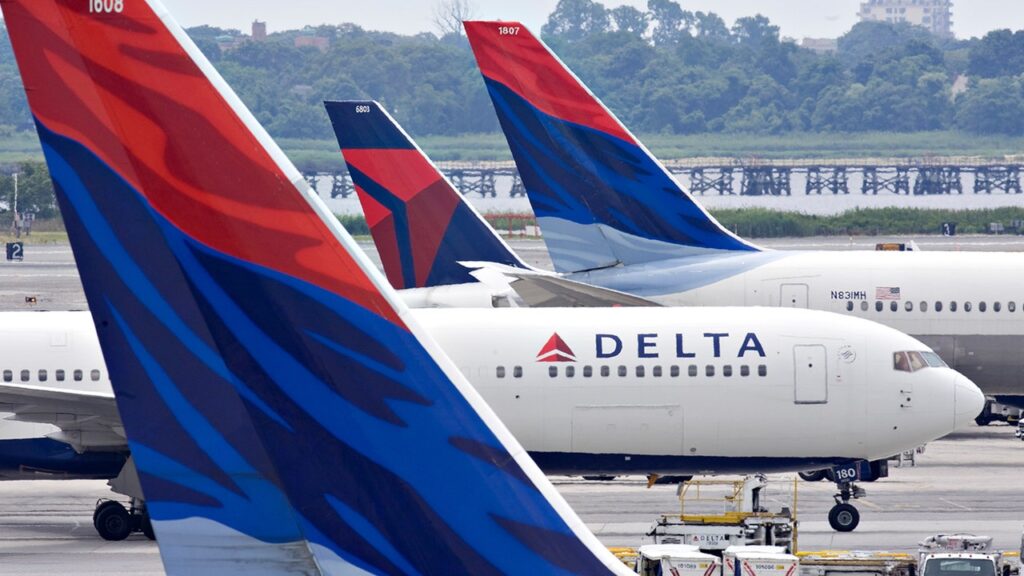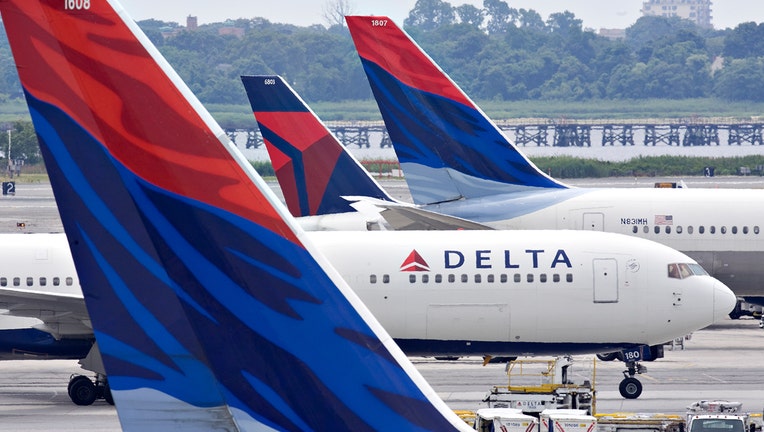

A Delta Air Lines plane taxis toward a gate between other Delta planes at John F. Kennedy International Airport in New York, U.S., on Monday, July 20, 2009.
ATLANTA – Delta Air Lines is under pressure from lawmakers and travelers alike after announcing plans to expand its use of artificial intelligence (AI) to set airfare prices on a growing portion of its domestic flights. The move is raising major concerns about fairness, privacy, and potential price discrimination.
What Delta Is Doing
What we know:
The Atlanta-based airline says it’s currently using AI to help price about 3% of its domestic flights and plans to expand that to 20% by the end of 2025. Delta is working with Israeli tech company Fetcherr, which uses AI to instantly analyze millions of data points to set prices based on market demand and other variables, according to PYMNTS.
Delta insists this technology is not being used to target individuals based on personal data, according to Reuters. Instead, the airline says AI is helping automate and improve traditional dynamic pricing methods that have been used in the industry for decades—where prices fluctuate depending on supply, demand, and other broad factors like time and route.
Why People Are Upset
What they’re saying:
Critics—including a group of U.S. senators—worry the AI could go further than just analyzing market demand. They fear it could lead to “surveillance-based pricing,” where ticket prices are tailored not by the market, but by a passenger’s personal data—potentially charging people more based on their browsing history, income level, location, or even social media activity.
This practice, known as individualized pricing, could mean two people on the same flight get very different prices—not because of timing or demand, but because one person’s data suggests they’ll pay more.
In their letter to Delta CEO Ed Bastian, Senators Ruben Gallego (AZ), Mark Warner (VA), and Richard Blumenthal (CT) warned that the technology could push prices “up to each individual consumer’s personal ‘pain point’ at a time when American families are already struggling with rising costs.”
They also raised serious concerns about transparency and privacy—asking what kind of data Delta and Fetcherr are using to train their pricing algorithms, and what safeguards are in place to prevent discrimination or misuse.
They are demanding an answer from the airline by Aug. 4.
Big picture view:
This is part of a broader debate over how AI is being used in business, especially when it intersects with sensitive data. Delta isn’t the only airline under scrutiny—lawmakers also recently questioned Frontier and Spirit Airlines over concerns they may be adjusting seat fees using customer data.
For now, Delta says it’s still in the testing phase and won’t fully roll out AI-based pricing until it’s sure the system is effective and fair. But with travel costs already high and public trust in AI still shaky, many passengers—and lawmakers—are demanding more transparency before that happens.





